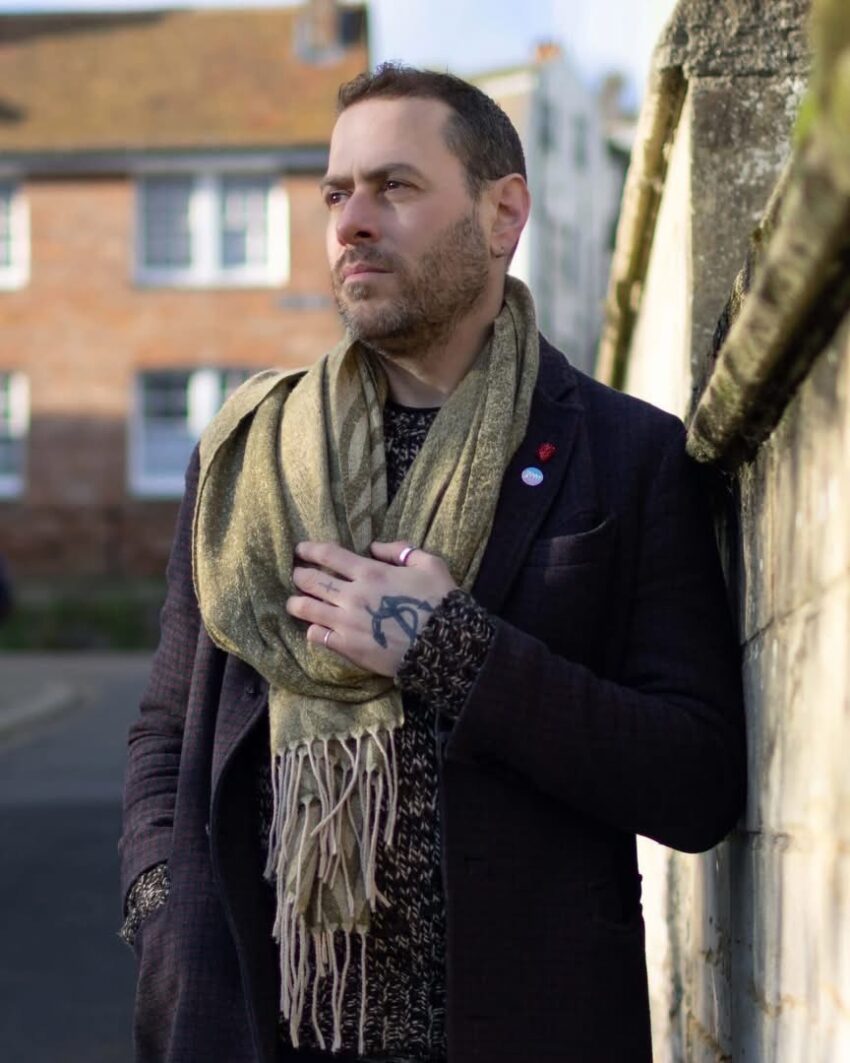Oli Spleen
On September 10, Moth Light Press will publish a book to commemorate two hundred years of Hastings poetry. Poet Town: The Poetry of Hastings & Thereabouts will be released in two paperback editions, featuring images of the contemporary poets in their chosen locations, brilliantly captured by photographer Maxine Silver.
The first section of the book, titled “Modern Poets”, features the works of over fifty contemporary writers. After this we find “Classic Poems”, and it seems to me to be perfectly apt that the poets of the past should meet the poets of the present in these pages: Hastings has always been a place where the ancient entwines with the modern, where history and myth are very much a part of our DNA. Here Henry Normal greets Edward Lear, Penny Pepper meets Christina Rossetti, Salena Godden communes with Lewis Carroll.
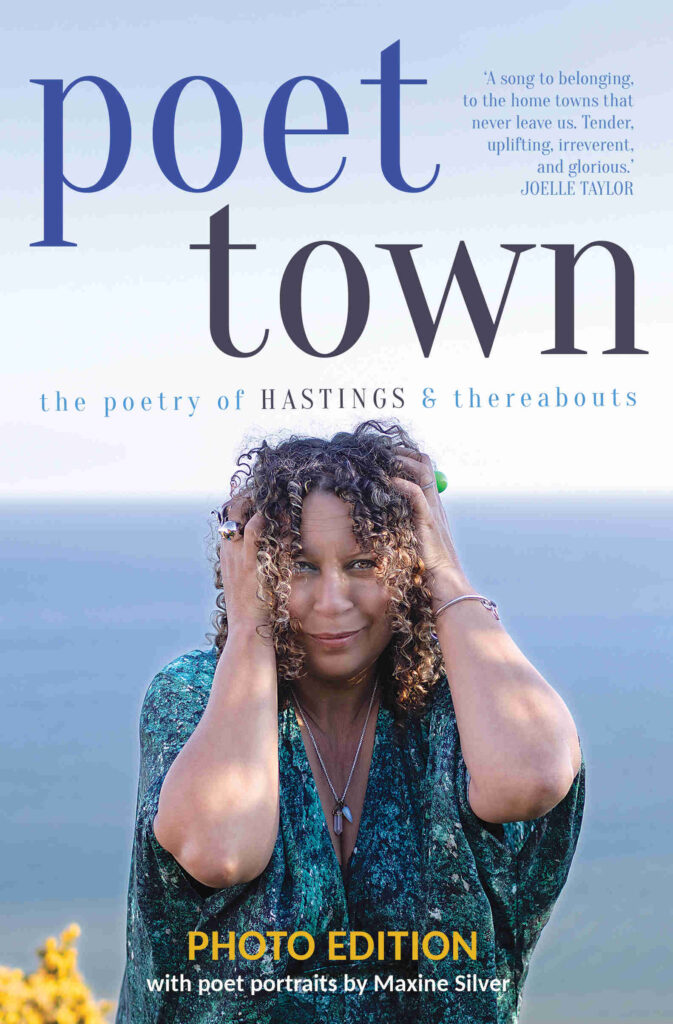
From St Leonards to the Old Town
I was born in the Buchanan Hospital at the bottom of Springfield Road in 1978. The same Springfield Road where Salena Godden grew up, and which she would later immortalise in her stunning memoir of the same name. My dad was a struggling writer making ends meet by publishing weekly columns in popular girl’s magazine Jackie. He had two young children from his previous marriage to a woman who had recently died of blood cancer. My mother, seventeen years his junior, had found herself in her early twenties looking after a grieving family, and living in their dead mother’s home.
Subsequently, just before my third birthday we relocated from Silverhill to a house in the High Street in Hastings’ Old Town. The building itself was over three hundred years old with foundations that dated back to Viking times. History and poetry seemed to be all around us here. The house in which we lived was said to have been purchased by the sea captain who had taken Napoleon to exile, bought for his mistress so she might be close at hand. The Pre-Raphaelites were concocting their romantic visions in poetry and paint just a few doors up the road from us, and just across from them Titus Oates, a member of The Gunpowder Plot, had his dwelling. As a child I remember often visiting the graveyard of All Saints Church at the top of our road where my dad would read us a poem from the grave of a nine year old child, John Archdeacon, who was murdered in 1820, the second verse of which seared itself onto my childhood mind:
In childish play he teased a mule
Which rag’d its owners angry soul,
And thro’ whose cruel blows and spleen
The Child so soon a Corpse was seen.
When, as a teenager, I chose a pseudonym to help me to forge a new identity, my family surname Speer became Spleen.
Those childhood years in the Old Town were magical, but by the time I started at school and had to interact with other children I was made to realise that I was different and the sense of joy and wonder was slowly stripped from me. In spite of this I always had that stunning coastline and the rolling hills to retreat to on long walks which would sooth my malaise.
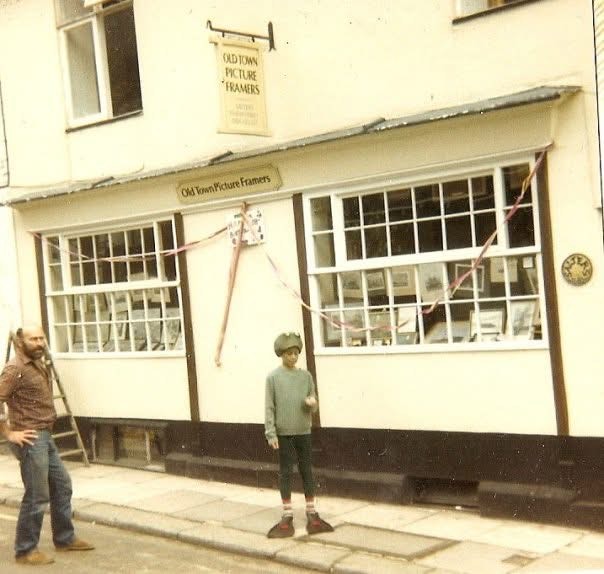
A community in need of poetry
As I write these words it was a little over a year ago that editor Richard Newham-Sullivan contacted me to tell me of his plan to bring the wonderfully eclectic poetry of Hastings, old and new together into a single anthology. I hadn’t seen Richard in some years, we first met in the mid to late nineties, almost thirty years ago now. Back then, we who expressed an interest in writing and performing poetry were a small minority of outsiders in this town. We would meet in a bar in Hastings town centre called Harpers and hone our performance skills at the open mic night there.
I had met poet Salena Godden a year or so earlier at happy hour in a bar in St Leonards called Mister Cherries. Although she was based in London by then, she and I would stay in touch with regular letters to one another. Salena was already making a name for herself as Salena Saliva, bringing poetry to the dance and rave scene with pioneers of British electronic music Coldcut, who she was often off on tour with.
Those nineties summers were wild and chaotic. Our group of misfits and outsiders often included a shy young student photographer named Max. When Maxine and I reconnected last December to photograph me and Merlin Betts for this collection, the memories came flooding back. Max had been there that summer when I was arrested for theft of wood from next to the bins in Gotham Alley. What looked to us to be abandoned timber, which we had planned to burn for a beach fire, turned out to be the shutters of the building it was leaning against. As a large group of us had taken the wood, I accepted full responsibility for the unintentional theft so the police wouldn’t have to arrest us all.
I had swallowed some LSD prior to my incarceration so spent the night in the cells tripping, much to the chagrin of the police sergeant who, on my release, asked if I’d learned my lesson. I certainly had learned something: to meditate rather than worrying about the intimidating court documents thrust at me in my cell; I learned that if they couldn’t imprison my mind I could still be free.
Hastings police seemed to have a vendetta against me, or perhaps anyone perceived as different. They would often stop and search me simply because I was wearing makeup and a dress, or no shoes. When I asked if it was illegal to be dressed this way they replied, “no, but it’s suspicious”. Maxine also reminded me that she was with me in Hastings’ only gay bar (now a strip club) when violent homophobes gathered outside and smashed the windows.
Escape to Brighton
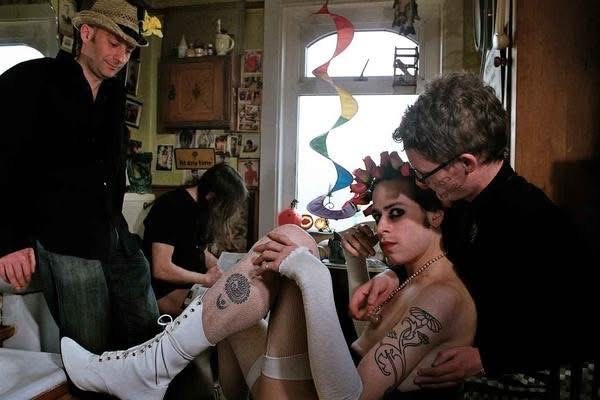
In the eighties and nineties Hastings was a hostile environment for someone who was as openly queer as I. My experiences growing up here had deeply traumatised me and had caused me to spiral down to where I wanted to end my life. This culminated in a hospitalisation from AIDS-defining complications in the summer of 2000, after which I fled to Brighton where I spent the first two decades of the new millennium. Brighton was my home for those years, and there I wrote a semi-fictional novel Depravikazi. This book attempted to articulate these self-destructive urges that were borne out of low self-esteem. At the Brighton book launch I formed my first band The Flesh Happening where I put these same thoughts into song.
As teens we often talked of a curse put on Hastings by occultist Aleister Crowley, who had also endured a miserable schooling in the town and whose life ended here. We believed that all who attempted to escape would be doomed to return. It was said you could protect yourself from this curse if you kept a hagstone from the beach (a pebble with a hole in it), so one of these talismans went with me wherever I stayed.
Return to the Source
Then in the spring of 2020 we were hit by an epidemic that echoed my experiences with AIDS two decades before. Expressing symptoms of Covid myself, I came to lock down and self-isolate in a shed at my sister’s place just outside of Hastings. Here I reconnected with nature and made plans for an album of songs which was to be called Still Life.
In reconnecting with the town of my birth over the few years since, I came to realise that my heart had never left here. That old curse was drawing me back, and it wasn’t such a bad thing after all. In these years I found love here and rediscovered a sense of community, particularly in St Leonards. We would rarely set foot there in the nineties, except to go to Art College, and that fateful happy hour at Mister Cherries where I met Salena, who would continue to be a dearest friend and a lasting poetic inspiration to this day. St Leonards is a place that has truly blossomed in the last decade or so and has become a haven for artists and misfits such as myself.
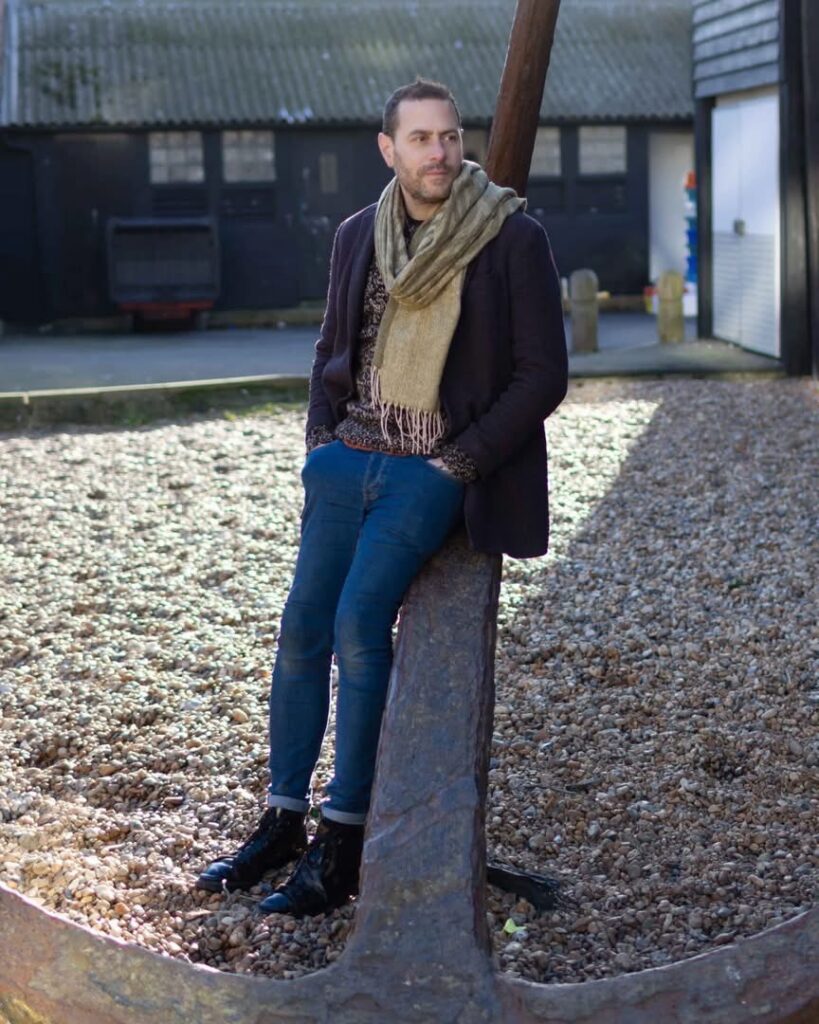
“Still Life”, the title track of my latest album, was one of the poems chosen by Richard for this marvellous anthology. Rereading those words today, they seem to contain a prophesy:
If my fate has not unfolded
And my path is still not set
I can find a way to will life
To the place I need to get
The breadth and scope of the poems gathered in Poet Town reflect all the diversity, the warmth and heart of a town that has always prospered in the face of adversity. I no longer feel an alien in the town of my birth. In the company of these poets, in this book, in this place, I have at last found a realm where I feel I truly belong.
The Poet Town book launch will take place as part of Hastings Book Festival at The Observer Building, Cambridge Road, Hastings, TN34 1DT, on 18 September 2025.

